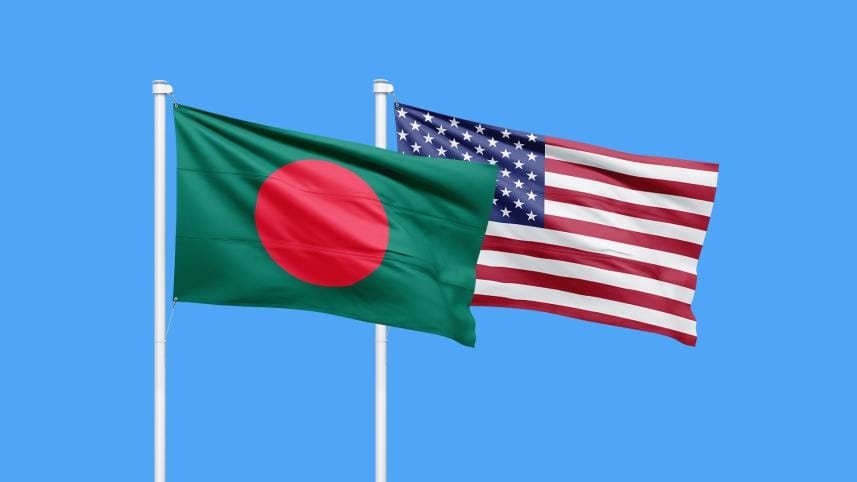Washington wants Dhaka to play key role in Indo-Pacific region

The US wants to see Bangladesh as an independent player in the Indo-Pacific region, recognising it as a significant geostrategic actor in the region's security architecture, says US-based foreign policy expert Anu Anwar.
He made the observation during an interview with The Daily Star following the Dhaka visit by Donald Lu, US assistant secretary of state for South and Central Asia, from January 14 to 15.

This was the 11th visit by a high-level US delegation over the last two years, which is unprecedented in recent memory, said Anwar.
"These frequent visits are the reflection of the United States' recognition of Bangladesh as a significant geostrategic player in the Indo-Pacific security architecture," he told this newspaper yesterday.
Anwar, a Fellow at the Faculty of Arts and Sciences and an Associate in Research at the John K Fairbank Center for Chinese Studies, Harvard University, specialises in issues on international security.
Asked why Bangladesh is of so much importance to the US, Anwar said that given the country's geostrategic location and its economic and demographic heft, Dhaka has always deserved a distinctive place in Washington's South Asia policy.
Unfortunately, he said, USA's South Asia policy historically has been centered on Pakistan, which in recent past shifted to India. Over the last few years, the US initiatives suggest Washington started recognising the urgency of change in its traditional approach to South Asia.
"The nuclear power-centric policy alone isn't good enough to achieve the objectives of the US Indo-Pacific strategy. In South Asia, it would require an extensive engagement with non-nuclear-South Asia as well, in which Bangladesh features distinctively.
"This recognition is followed up by a set of actions, which are creating a renewed valued impression in Dhaka. This is, nevertheless, a positive development for Bangladesh."
Asked what the US wants to achieve through this, Anwar said Washington wants to make sure that Bangladesh upholds the basic norms and values of Indo-Pacific strategies such as upholding democracy and ensuring human rights, civil liberty, and the rule of law.
"Washington wants to ensure that Bangladesh doesn't fall into Burma's path but Dhaka is capable of dealing with Burma on its own strength."
Asked how Bangladesh can benefit from this, Anwar said the key to Bangladesh's success is the diversification of its partners.
"…. Stronger ties with the US would bring such an outcome that no other partnership can deliver.
"Bangladesh's geopolitical realities also dictate that it needs an external balancer to navigate through the challenging environment in which it exists."
Commenting on Lu's appreciation regarding Rab's "progress", the foreign policy analyst said, "The United States would continue to render a deliberate and proportionate response to Dhaka's actions, and that of course includes rewards. Since the Rab has rectified the issues that the US objected to, hence the appreciation.
"But it would be unwise for Dhaka to take this appreciation for granted. There are a number of fronts on which Washington still holds strong reservations, and free fair election is on the top of that list. So, it's fair to surmise that Dhaka's failure to meet the standards of those contentious issues will prompt a set of renewed reactions from Washington."




 For all latest news, follow The Daily Star's Google News channel.
For all latest news, follow The Daily Star's Google News channel.
Comments